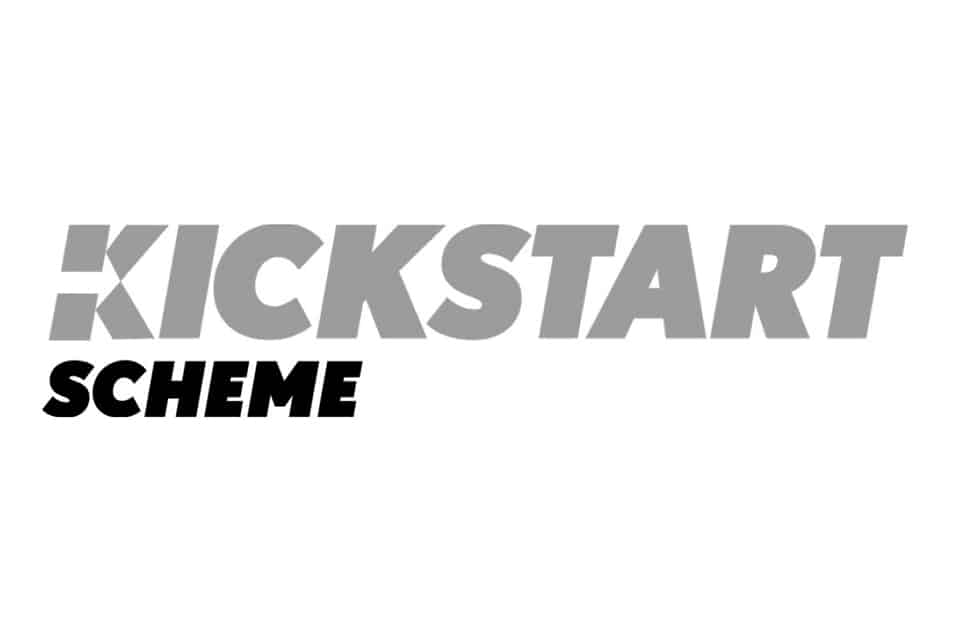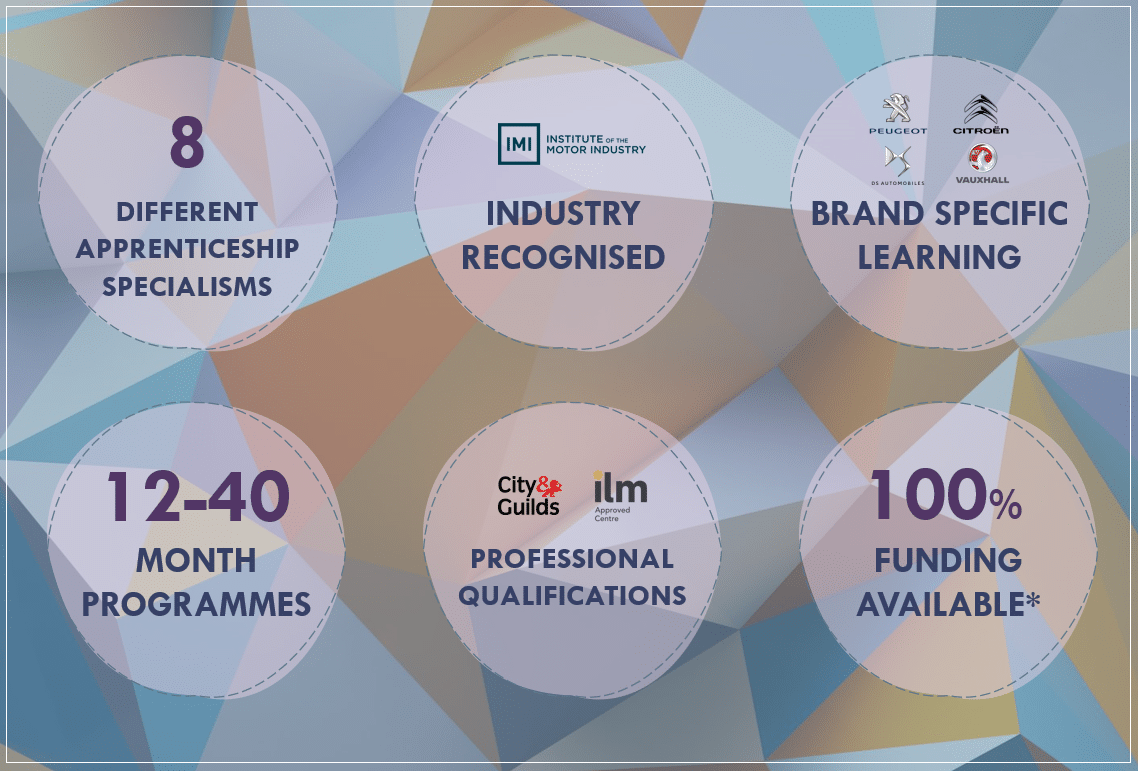Parents and Careers Guide to SEND

Parents and Careers Guide
This guide explains how the system that supports children and young people with special educational needs and disability (SEND) works.
It covers:
- the law and guidance on which the system is based
- places to go for help and further information
- details about changes to the system from 1 September 2014
It may also be useful for staff dealing with the parents and carers of children and young people with SEND in:
- schools and colleges
- early years education settings
You may also find the easy-read version of this guide for parents and carers and for children and young people useful.

Calex training teams always strive to provide the best opportunities for apprentices to flourish and develop their knowledge, skills and behaviours. We may need to work beyond the elements listed above and are always looking for new ways to improve delivery. Specific support outside of these elements may be sourced locally to further support development.
Any SEND needs can be discussed by sending a message to our Welfare and Support Coordinator: safeguarding@stellantis.com
Local offer to support SEND
How is your local authority supporting you?
Each local authority must publish in one place information about the provision that should be available in their area for children and young people aged 0-25 with special educational needs and disabilities (SEND). This information is important for apprentices who need support during their training. Once we have received a referral, the Welfare Support Coordinator will work with the apprentice, parents and employer to identify local support where this is required.


Local SEND strategy for Oxford:
Oxfordshire has developed a local SEND strategy for children and young people aged 0–25 with special educational needs and/or disabilities (SEND). It sits alongside the Health and Wellbeing Strategy, which in turn is based on our Joint Strategic Needs Assessment (JSNA).
It has been developed by the SEND Strategy Development Group with representatives from Oxfordshire County Council (Education and Social Care), NHS Oxfordshire Clinical Commissioning Group, Education Services and Oxfordshire Parent Carers Forum.
Implementation plans will take account of parent feedback, be developed in co-production and align with strategic objectives. In addition, measures to measure the impact of the SEND strategy at a local level are currently being developed to help us monitor our progress.
Further examples of SEND provisions:

SEND and Inclusion Policy
At Calex, we are committed to providing equal opportunities in employment and to creating an inclusive working environment, where you are encouraged and assisted to reach your full potential. We are aware that some apprentices with Special Educational Needs and Disabilities (SEND) may face barriers to learning. To find out more about our policies we have to support inclusive working, please click on the buttons below.
Test and Exam Access Arrangements
Exam Access Arrangements
We want the best for all our apprentices on the training programmes we offer as well as progression in your careers and develop professionally in your role. While you are on one of our programmes, we want to ensure that you always receive the support you need to achieve your apprenticeship and further qualifications.
All of the training programmes we offer include theoretical and practical assessments. So if you have formally documented SEND needs, we need to ensure that we apply for and are approved for special conditions to take these exams and assessments. This may involve extra time to read, the use of a personal reader to read the questions and many other options. This is important because otherwise it can make the difference between passing and failing.

Let's start at the beginning...
It is important that you understand what an Exam Access Arrangement (EAA) is. This is a set of support features that can be used during your exams to provide you with additional support during your exams. These include a reader, a scribe, extra time (25% or 50%) to name but a few. If you have received it in previous assessments or exams in a previous educational setting, you are entitled to it in all future assessments or exams.
Sometimes this process is not straightforward as it requires our Welfare Coordinator and Quality Manager to complete a number of documents and objectives to decide if you are entitled to these support features. This process can sometimes take up to 4 weeks and involves you completing an assessment to describe your support needs. We need to make sure that you provide us with all the information when you apply for an apprenticeship if you have received these support functions during your school education. If you do not declare your personal needs at the start of your apprenticeship, you may be denied the right support you are entitled to.
So if you have ever claimed exam access arrangements or if you would like to check whether you are entitled to them, please email safeguarding@stellantis.com or speak to your trainer or coach.
Access arrangements are adjustments for apprentices prior to assessment based on evidence of need and normal working practises. Access arrangements fall into two categories:
– some arrangements are organised by the centres
– others require prior approval from the awarding body
An overview
Access arrangements allow apprentices with special educational needs, disabilities or temporary injuries to take the exam without altering the requirements of the exam. For example, readers, scribes. In this way, providers comply with the Equality Act 2010 duty to make ‘reasonable adjustments’.
The Equality Act 2010 requires providers to make reasonable adjustments where a disabled person would be put at a substantial disadvantage in the conduct of an examination.
A reasonable adjustment for a particular person may be individual and may not be included in the list of available access arrangements.
How reasonable the adjustment is will depend on a number of factors, including the needs of the disabled trainee. An adjustment may not be considered reasonable if it involves unreasonable costs or timescales or compromises the safety or integrity of the assessment.
Institutions are not obliged to make adjustments to the examination objectives being tested in an examination.
A special consideration is a subsequent adjustment to a candidate’s grade to take account of a temporary injury, illness or other indisposition at the time of the examination/assessment.
Reasonable adjustments allow apprentices with disabilities to have equal opportunities to other trainees who do not have additional needs or learning difficulties.
However, the access regulations must also correspond to the apprentice’s normal way of working. For example, an apprentice cannot expect to be given extra time on an exam if they always complete their work within the time allowed.
Some examples of access arrangements could be
– Additional time
– A reader
– A scribe
Learners who have already used access arrangements at school, college or university should notify the programme manager, development coach or trainer as soon as possible. Preferably this should be stated during the application process. This will not jeopardise participation in the programme, but it will help us to plan the training schedule as carefully as possible.
We understand that sometimes things are not as clear as you would wish and that trainees may find that they appear to have developed some learning issues which may affect their performance under exam conditions. If this is the case, apprentices and employers need to speak to the Welfare Coordinator, trainer or coach as soon as possible so that we can assess what support is required.
Once a referral has been received, the welfare coordinator will contact each learner to explain the process and what they need to do next to implement the access arrangements.

If you have any further questions about exam access arrangements or other additional learning support, please contact the support team at: safeguarding@stellantis.com

Calex training teams always strive to provide the best opportunities for apprentices to flourish and develop their knowledge, skills and behaviours. We may need to work beyond the elements listed above and are always looking for new ways to improve delivery. Specific support outside of these elements may be sourced locally to further support development.
Any SEND needs can be discussed by sending a message to our Welfare and Support Coordinator: safeguarding@stellantis.com
SEND Provisions Journey

How can we help...
Specialist SEND support for apprentices with SEND needs, including autism, learning difficulties, dyslexia, speech and language difficulties, social-emotional and mental health difficulties, physical and sensory difficulties is provided by our team and managed by the Welfare Support Coordinator.
We always aim to support all apprentices with learning difficulties and ensure they receive the support they need throughout their learning journey. This may be direct support or referrals for support from regional professional groups.
Find out more...
- Our programmes always consider the needs of apprentices with special educational needs and disabilities (SEND), which impact on their ability to progress and develop their knowledge, skills and behaviours
- Trainers, coaches and support teams are made aware of what is most appropriate for different groups of apprentices, including those with a variety of special educational needs
- Trainers, coaches, support teams and managers have access to training and we ensure that further training is provided as required and make staff aware of new and wider guidance on a variety of developments in SEND
- The Welfare Support Coordinator is aware of the guidance, research and support available from organisations specialising in SEND and signposts to the most relevant support available
- Trainers, supervisors, support teams and managers are aware of apprentice’s learning needs through discussions about apprentices' individual requirements and work from a prescribed learning needs report
- Trainers, coaches and support teams are aware of their responsibility to ensure access and appropriate differentiation for apprentices and refer apprentices who require support outside of our provision and develop strategies to support the individual needs of apprentices
- Trainers, coaches and support teams act on the information they receive about individual apprentices and refer them to the Welfare Coordinator
- Additional specialist advice and support can be provided by specialist organisations and local regional support after consultation
How we provide support...
Support Framework
- At Calex, we discuss challenges with apprentices who are struggling in all aspects of their learning journey towards their final exams and accommodate the challenges, stresses and anxieties that SEND needs can cause
- We are aware of the impact that social-emotional and mental health issues have on apprentices and provide support where we can to improve the impact on learning
- We strive for consistency in terms of inclusivity, organisation, structures and clear teaching and learning routines and training environments to best suit apprentices with additional needs in face-to-face settings
- We signpost apprentices and employers to self-help and counselling services to help them develop strategies to overcome their own difficulties, as well as other agencies which offer support
Training Delivery
- We modify lessons by simplifying instructions and information, breaking things down into smaller points and emphasising the most important and consistent explanations in the training materials. We use visual aids, components, checklists and reference objects to support the teaching of theory and practice
- During training, our trainers and coaches can give extra time for reflection, speaking and listening as well as completing tasks
- We provide systems and materials to help with revision and additional learning, support with prioritisation and organisational skills and improve listening and attention skills with face to face and online training
- We provide support in the provision and use of ICT for accessibility and work with employers to financially support access to equipment
- We ensure that trainers, coaches and support teams provide assistance in completing projects and assignments, training tasks are clearly outlined so that apprentices know what they need to do to complete the tasks in their programme
- Trainers, coaches and support teams demonstrate and model learning and consistently reinforce language and terminology where necessary to ensure apprentices absorb information and develop skills
Learning Support
- We can provide assessments for exam entry arrangements where official declarations have been submitted
- Calex apprenticeship programmes provide a highly organised learning space for in-person and virtual training and provide inclusive accessibility to learning materials
- We use short reflection sessions to promote understanding (repeating, rephrasing, explaining and demonstrating)
- We use different ways of setting tasks to ensure both access and understanding of the curriculum topics. We encourage apprentices to work in pairs and small groups to encourage and develop apprentices’ social and communication skills
- We recognise the importance of not making too many changes during training and we ensure that transitions between apprentices are made clear and needs are addressed during training
- During theoretical training, we aim to avoid sensory overload and are able to create a calm and distraction-free learning environment if required


Calex training teams always strive to provide the best opportunities for apprentices to flourish and develop their knowledge, skills and behaviours. We may need to work beyond the elements listed above and are always looking for new ways to improve delivery. Specific support outside of these elements may be sourced locally to further support development.
Any SEND needs can be discussed by sending a message to our Welfare and Support Coordinator: safeguarding@stellantis.com
Learner Support
SEND: Special Educational Needs and Disabilities
At Calex we are aware that some apprentices with Special Educational Needs and Disabilities (SEND) may face barriers to learning.
Apprentices may face a range of barriers including additional learning needs, physical disabilities or a range of social, emotional and mental health conditions as well as language and communication difficulties.
With our training programmes, we want to ensure that all apprentices have the opportunity to reach their full potential. We want to ensure that all learners, regardless of their needs, can complete their learning process.
Apprentices are supported to ensure they can develop their skills and knowledge by recognising their abilities, strengths and values to enable them to learn and progress.


Our Calex SEND Policy
- How Calex Apprenticeships will support learners with SEND
- The way we manage SEND and provide processes and procedures to ensure learning has no barriers.
Adaptation for all
We recognise that SEND has many levels and that some apprentices with SEND may only require minor support, which their allocated trainer or regional development coach can provide on a one-to-one basis to ensure they fully understand the theoretical and practical content of their course and can access their full training programme. The trainers and regional development coaches can provide various types of support in collaboration with our Welfare Coordinator.
Some apprentices on our programmes may need support in preparing for exams and tests. This may include reasonable adjustments to ensure that trainees completing their training receive support to improve access to exams, for example by providing extra time or a supportive reader during a practical test or exam.
Support for Learning and Development
Apprentices who have more complex needs will require support from our dedicated welfare and support team. This team will discuss specific needs and provide a dedicated support package for each individual.


Mental Health Support
The wellbeing of apprentices is very important to us. We ensure that the support team have received appropriate training to help trainees who are experiencing mental health issues or simply need a friendly chat to help manage a short-term problem. Calex invests in safeguarding training for all staff and has developed safeguarding policies and procedures to ensure we can quickly identify issues and concerns.
SEND and Inclusion Policy
At Calex, we are committed to providing equal opportunities in employment and to creating an inclusive working environment, where you are encouraged and assisted to reach your full potential. We are aware that some apprentices with Special Educational Needs and Disabilities (SEND) may face barriers to learning. To find out more about our policies we have to support inclusive working, please click on the buttons below.
Kick-Start Programme

What is the Kick Start Scheme?
As part of the government’s Plan for Jobs, a new £2 billion Kickstart Scheme will create hundreds of thousands of new, fully subsidised jobs for young people across the country.
The 6 month placements are open to those aged 16-24 who are claiming Universal Credit and at risk of long term unemployment. They will be available across a range of different sectors in England, Scotland and Wales. The first placements are likely to be available from November.
Upto £1500 of funding will be available to employers to help toward additional training, mentoring and support to help young people to build their experience and move into sustained employment after they have completed their Kickstart funded job.
Furthermore, our own aim is to work with employers and participants to help them into full-time apprenticeships from months 3-6 where possible. The scheme represents an excellent opportunity to identify new talent and to work with individuals to assess their suitability for further opportunities and formal training.
Employers will receive funding for 100% of the relevant National Minimum Wage for 25 hours a week, plus associated employer National Insurance contributions and employer minimum auto-enrolment pension contributions.
Applications are being accepted now from employers or groups of employers. The Performance Academy, in conjunction with Calex UK, are currently working together to form an Intermediary Gateway Organisation to identify as many opportunities as possible within the PSA retailer network.
How do I get involved?
There are endless benefits to investing in your team. Whether that’s through formal training, proessional qualifications, or apprenitceships.
Right now, the Government are inviting applications from groups of employers to create job placements for young people and we want to work with you to create as many high quality opportunities as possible.
We will work with all participants to deliver a short programme of learning covering basic skills (according to their role with each employer), employability skills, health and safety and an introduction to automotive systems and service processes.
How the scheme works
You can use the Kickstart Scheme to create new 6-month job placements for young people who are currently on Universal Credit and at risk of long-term unemployment.
The job placements should support the participants to develop the skills and experience they need to find work after completing the scheme.
The Kickstart Scheme is available in England, Scotland and Wales.
Can I continue to work with the participant after 6 months?
Yes, you may continue to employ the participant outside of the scheme. We may also work with you, subject to eligability requirements, to enrol the participant onto a relevant training or funded apprenticeship delievered by PSA.
Register your interest
To get involved, please complete the short form below. Once received, one of the team will be in touch to discuss the process with you.
Information for Employers
Working together to develop the next generation of talent
Fully funded* industry recognised and brand accredited learning for new and existing employees
This guide has been developed for employers to support their understanding of the Apprenticeship Programme and includes essential information relating to Funding, Qualifications, and Recruitment.
The Apprenticeship Programme supports retailers to identify and attract a new generation of talent, providing them with the platform to grow their professional careers.
We combine industry recognised qualifications and manufacturer accreditation over 12-40 months, ensuring that apprentices develop the skills, bahvaviours and competencies to thrive in a busy and professional retail environment.
We offer 8 different learning pathways covering technical and commercial roles. Each one can be structured to suit new industry entrants, or semi-experienced staff.
Each one of our programmes is eligable for up to 100% Government or Levy funding and we aim to support employers to understand this process.
We’re also on hand to support employers to advertise, employ and enrol via our free recruitment service. Read on for more information.
What Apprenticeships do we offer?
There are 8 different apprenticeship pathways covering every retailer specialism. Each programme is linked to a professional qualification and brand accreditation, while all of our programmes are eligable for Govenment and Apprenticeship Levy Funding.
- Service Technician | Level 2 & 3
- Digital Marketer | Level 3
- Service Customer Advisor | Level 2 & 3
- Parts Customer Advisor | Level 2
- Business Administration | Level 3
- Sales Executive | Level 2
- Damage Panel (or Paint) Technician | Level 3
- Team Leader & Supervisor | Level 3
For more information about our programmes, FAQs, and funding infomration, please download our programme brochure below, or keep reading.
Programme Pathways
There are 8 different apprenticeship pathways available. Each has been carefully developed to combine a professional training with the latest brand and industry learning.
All of our programmes are eligable for Government or Apprenticeship Levy funding.
For a high level overview of each programme please download the Programme Pathways Overview PDF (below).
Apprenticeship Funding Explained
We want to help you access government funding to expand your workforce through recruiting an apprentice, or enroling your existing staff onto our professional courses (eg. Leadership & Supervisor, Digital Marketing, or any of our Apprenticeship pathways)
If your annual wage bill is over £3million, the cost of training will be funded by the funds in your Digital Apprenticeship Service (DAS) account. These funds already build automatically and will be organised by your central payroll function.
If your annual wage bill does not exceed £3million, the Education and Skills Funding Agency (ESFA) provide 95-100% funding for the cost of training, subject to the size of your business.
How do I know if my business is eligable for 100% funding?
- If your annual wage bill is less than £3million and you have less than 50 employees you will be eligible for 100% funding for individuals aged 16-18 or 95% funding for individuals aged 19+, you will be required to fund the remaining 5% in installments (this is usually a token amount)
- If your annual wage bill is less than £3million and you have more than 50 employees you will be eligible for 95% funding for individuals aged 16+, you will be required to contribute the remaining 5%.
Employers can also access £3,000 for new apprentices of any age who join their organisation from 1 April 2021 to 30 September 2021.
The incentive payment is in addition to the £1,000 employers already receive for hiring an apprentice:
- aged 16 to 18 years old
- under 25 with an education, health and care plan or who has been in the care of their local authority
The payments are different to apprenticeship levy funds, so you can spend it on anything to support your organisation’s costs. For example, on uniforms, your apprentice’s travel or their salary. You do not have to pay it back.
We’ll discuss the eligibility criteria and timelines with you in more detail prior to your apprentice’s enrolment. For more information about funding, please use the link below.
There's never been a better time to invest in new skills for your business.
Access upto £15,000* in funding to support the training and development of your new apprentice. For more information, please contact us today.
Free Recruitment Support Service
Take advantage of our free recruitment support service and register a vacancy today.
The team will work with you to advertise on a range of National Apprenitceship Job Boards – including apprenticeships.gov.uk. They’ll manage all of the initial applications on your behalf and will run eligability and suitability assessments to ensure that you see the very best candidates.
Vehicle Damage Paint Technician
Key Information
Location:
Nationwide Opportunities
Duration:
36 months
Qualification:
Vehicle Damage Paint Technician (Level 3)
Entry Requirements:
GCSE (or equivalent) grade A*-C or 9-4 in Maths and English. Predicated grades are accepted.
Job Role
A Vehicle Damage Paint Technician works in the vehicle body repair sector of the motor industry. The role is to prepare, spray, and finish vehicles that have been involved in collisions and other incidents in an efficient manner. The vehicles can include Cars/Light Commercial Vehicles. This includes ensuring the correct colour match and final finish to the company and customers’ exacting standards. This is usually within a collision repair workshop or smart repair workshop/mobile repair micro business & working alongside another fully qualified Paint Technician.
They prepare vehicles fully before painting to include masking, sanding, and other necessary preparation work.
They are also responsible for keeping all company tools and equipment safe and in a clean, workable condition paying particular attention to the reduction of any fire hazards.
Their role includes repair, surface preparation, and painting to the manufacturer paint specification. A technician is able to follow defined processes to restore the vehicle to a high-quality paint finish. This includes being able to demonstrate colour identification and select the correct materials such as primers, base coats & lacquers applied using spray equipment & utilising modern drying/curing techniques such as Ultra Violet (UV), Infrared & catalytic solutions used in the refinishing of vehicles. Create a safe environment working efficiently and reducing waste.
The duties of a Vehicle Damage Paint Technician may include:
- Using a range of tools
- Mixing & applying primers & colour coats, using spray guns & equipment.
- Polishing painted panels using the polishing machines.
- Keeping records of all completed work
We’re looking for ambitious candidates ready to take ownership of their development, work hard to achieve their potential and grow with an ambitious employer.
Future Prospects
There are lots of opportunities to develop your career; from short to long term. Your early development is carefully mapped through your Apprenticeship journey with your learning focussed toward achieving an industry recognised qualification that’s recognised across the Motor Industry.
This is the grounding for your future development within the network and opportunities exist, once qualified, to further develop your skills and to move into new roles.
Applications open all year round…
Learn More
A typical working week could be 40 hours Monday to Friday 8.30am – 5.30pm, however each of our Dealers will have different requirements.
All learners will be required to work the minimum apprenticeship duration of 30 hours per week. At least 20% of your working hours will be allocated to ‘off-the-job’ training. We’ll support you to understand the working hours during the recruitment process.
All of our opportunities receive a really good response and so we’re looking for you to demonstrate why you stand out from the crowd. We’re not looking for the finished article; rather we want to identify those people that are ambitious and demonstrate a willingness to learn, who are excited by the prospect of working with our fantastic, technologically advanced vehicles, and really engage in the recruitment process.
We are committed to supporting our Apprentice’s technical, employability, and broader personal development skills, to ensure they can progress and develop their career. When it comes to selecting the right people to become apprentices, it’s as much about attitude as it is about vocational and academic success. That’s why in addition to the qualifications we require from you, we’ll also look for you to possess the following key behaviours. From problem-solving abilities to an enthusiasm for our industry, these are all attributes that will be vital in your role and they will be assessed throughout the application process.
- Logical and creative thinking skills
- Analytical and problem-solving skills
- Ability to work independently and to take responsibility
- Can use own initiative
- A thorough and organised approach
- Ability to work with a range of internal and external people
- Ability to communicate effectively in a variety of situations
- Maintain productive, professional and secure working environment
Age: 16+
Prior Attainment: GCSE (or equivalent) grade A*-C or 9-4 in Maths and English. Predicated grades are accepted.
In Scotland, applicants must have or be predicted to achieve National 4 or above in English and Maths and either a Science or Technical subject. Standard Grades 1-4 and Intermediates are also accepted.
‘Equivalent’ grades include:
- BTEC first diplomas and certificates
- OCR Nationals
- Key Skills Level 2
- NVQs
- Essential Skills (Wales)
- Functional Skills Level 2
- Core Skills (Scotland)
Your application will be assessed by the Recruitment & Selection Team against the Entry Requirements specified for the role. We aim to update you on the status of your application within no more than 5 working days.
If you are successful in your application you will be invited to participate in a short telephone interview. Candidates are then shortlisted again and will be asked to complete a range of web-based assessments appropriate to the role that you have applied for.
Finally, candidates are invited to meet with their local Dealer in the form of a face-to-face interview. This may extend to a second interview and in some cases a working trial.
More information will be shared with candidates as a part of the process. Feedback is made available to candidates at each stage.
We welcome applications from everyone irrespective of gender and ethnic group and appointment will be based on merit alone. Being committed to equal opportunities, if you have a disability please state this during the application process. Measures will be put in place to support you through your application and apprenticeship journey.
Our Dealers dictate the remuneration that our learners receive. All Dealers are required to pay, at least, The National Minimum Wage.
More information about the minimum wage for apprentices can be found on the Government website at:
https://www.gov.uk/national-minimum-wage-rates
Apprentices are paid for their normal working hours and training that’s part of their apprenticeship.
For more information about the opportunity or to discuss your application, please contact the Recruitment and Selection team on 01235 538 611.



